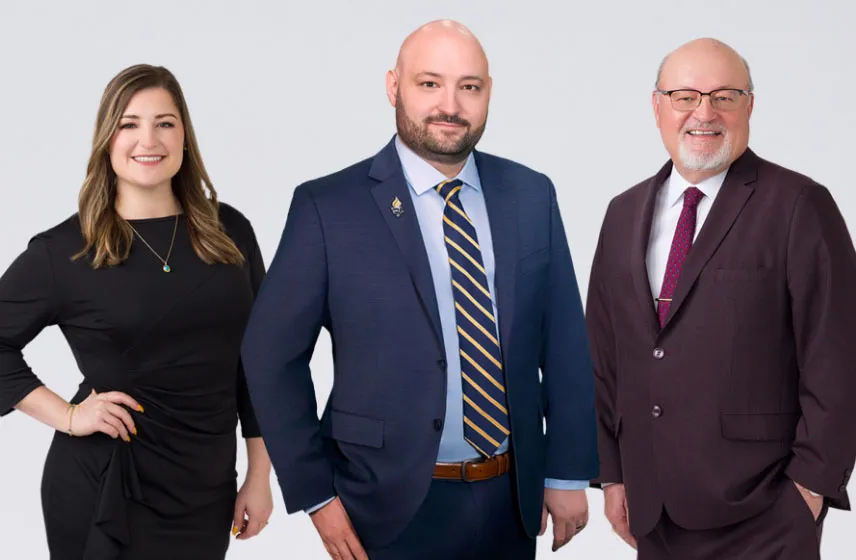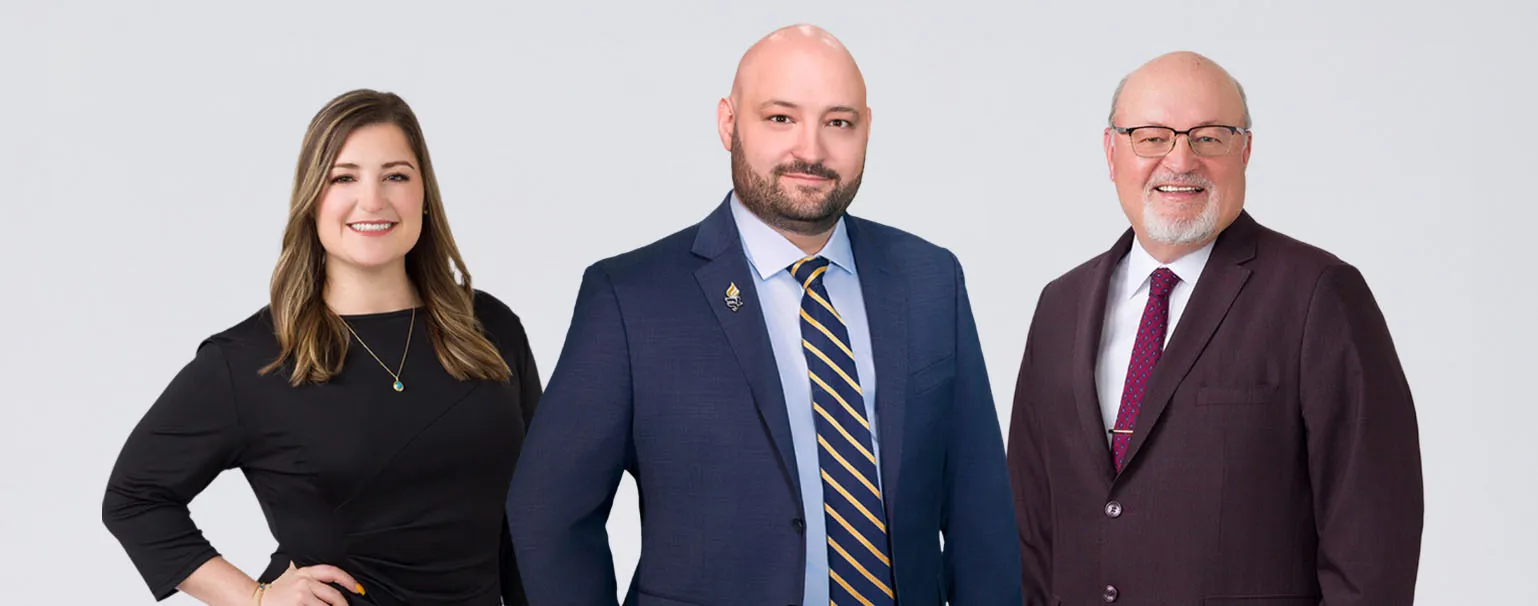
Have a Traffic Ticket? Don’t just pay the Fee
For many of us, driving is an essential part of daily life in the Las Vegas Valley. We rely on our cars to get to work, run errands, and visit friends and family.
With so much time spent behind the wheel, it’s almost inevitable that someone might make a mistake and receive a traffic ticket. Every year, thousands of drivers in Nevada are cited for various traffic violations.
When you receive a ticket, you have two options: pay the fine or contest the ticket in court.
Type of Traffic Violations in Las Vegas:
- Driving Under the Influence (DUI)
- Leaving the Scene of an Accident (Hit and Run)
- Vehicular Homicide / Vehicular Manslaughter
- Driving with a Suspended License
- Reckless Driving
DON’T JUST PAY YOUR TICKET. It’s time to consider the consequences of just paying the fine or exploring your legal options, with our team of Las Vegas ticket traffic lawyers.
By paying the fine, you are effectively pleading guilty to the violation, which will remain on your driving record for years and could increase your insurance premiums.
If you receive a ticket, it’s wise to consult our traffic ticket defense attorneys to discuss your rights and options.
Why Hire Bay Law When You Get a Traffic Ticket
If you forget about a traffic ticket or miss the deadline to address it, a criminal bench warrant can be issued. A judge may find you in contempt of court for failing to appear or resolve the ticket. Contempt charges can result in jail time, increased fines, or even additional criminal charges.
If you have a bench warrant due to a traffic ticket, it’s crucial to contact us at Bay Law Injury Attorneys immediately. Ignoring the issue can lead to a contempt charge on your record, which may impact other legal matters, including custody status in criminal cases.
Our Las Vegas traffic ticket lawyers can assist in resolving your traffic ticket violations. Our experienced attorneys will attend court appearances on your behalf whenever possible to defend against the ticket. For more information and a free consultation, call (702) 710-7000.
Ticket Points
System ExplainedThe state of Nevada implements a point system to track certain traffic violations. Most moving violations in Nevada are assigned points ranging from 1 to 8. If you plead guilty or are convicted of a violation, these points will be added to your driving record. Accumulating 12 or more points within a twelve-month period results in a six-month suspension of your driver’s license by the Nevada DMV.
It’s crucial to address any tickets promptly to protect your ability to legally drive. Keep in mind that if your license is suspended in Nevada, you may also face restrictions on driving in other states.
Below is a list of traffic violations and their associated point values. Note that points are not permanent; they can be removed by taking traffic safety courses or will automatically drop off your record after two years. However, the convictions themselves will remain on your record, even though the points may be removed, preventing your license from being suspended.
- Reckless driving: 8 points
- Careless driving: 6 points
- Following too closely: 4 points
- Failing to yield right-of-way: 4 points
- Failing to yield to a pedestrian: 4 points
- Disregarding traffic light or stop sign: 4 points
- Driving too slowly: 2 points
- Speeding (up to 10 mph over limit): 1 point
- Speeding (11-15 mph over limit): 2 points
- Speeding (16-20 mph over limit): 3 points
- Speeding (21 mph or more over limit): 4 points
- Speeding (1-15 mph over limit in school zone): 4 points
- Speeding (16 mph or more over limit in school zone): 6 points
For a comprehensive understanding of the point system and its impact on your situation, it’s advisable to consult with our experienced Las Vegas traffic attorneys. Depending on your current driving record and any new citations, calculating points can become complex. Be sure to bring your driving record and the citation to Bay Law for a thorough assessment.
Types of Violations
Moving vs. Non-Moving
Violations in Nevada
Traffic tickets in Nevada can be issued for either moving or non-moving violations.
Moving violations occur when a driver violates traffic laws while the vehicle is in motion. Points are generally assessed for these types of violations. Examples include:
- Drunk driving
- Speeding
- Running a red light or stop sign
Non-moving violations, on the other hand, typically involve parking infractions or issues with vehicle equipment. Examples include:
- Driving with broken taillights
- Parking in a no-parking zone
- Parking in a handicap space
When a driver receives a moving violation, the Nevada DMV records the offense and assigns demerit points to the driver’s license. Accumulating too many demerit points can lead to additional fines and penalties, including the suspension of the driver’s license. Insurance companies often review driver records and may increase premiums if they find any offenses.
People shouldn’t have to suffer long-term consequences for minor mistakes. It’s often beneficial to consult an experienced Nevada traffic ticket attorney before paying a ticket. Fighting the ticket in court may be the best option, especially with knowledgeable legal representation.
Other Things You Should Do
What to Do if Pulled Over by the Police
- If you are signaled to pull over by a police officer, follow these steps
- Slow down immediately and turn on your blinker.
- Pull over to a safe area, such as the shoulder or a nearby parking lot.
- Turn off your vehicle, including the engine and radio, but leave your lights on if they were already on.
- Keep your hands visible on the steering wheel at the 10 and 2 positions.
- Avoid reaching into your pockets or the glove compartment to prevent any misunderstanding.
- Stay in your vehicle unless instructed otherwise by the officer.
- Comply with all requests or orders from the officer.
- If issued a citation, accept it without protest and sign the acknowledgment. You can challenge the ticket later in court.
- If arrested, do not resist. Request a lawyer and exercise your right to remain silent.
If you or someone you know is dealing with traffic ticket violations, contact Bay Law Injury Attorneys for a free legal consultation.
Their experienced team of Las Vegas traffic ticket attorneys can help you navigate the legal process and minimize the impact of traffic violations on your life.
They will attend court on your behalf whenever possible, ensuring the violation does not disrupt your daily life significantly.
Contact Our Las Vegas Ticket Attorneys For A Free Consultation Today
The court will base the number of damages awarded on the evidence presented in your case. The insurance company will only pay up to the maximum of the insured’s policy. If the settlement is for more than the insured’s policy, you can file a personal lawsuit against the at-fault driver for the remaining amount.
Our Las Vegas personal injury attorneys at Bay Law Injury Attorneys will help you if your case goes to court.




